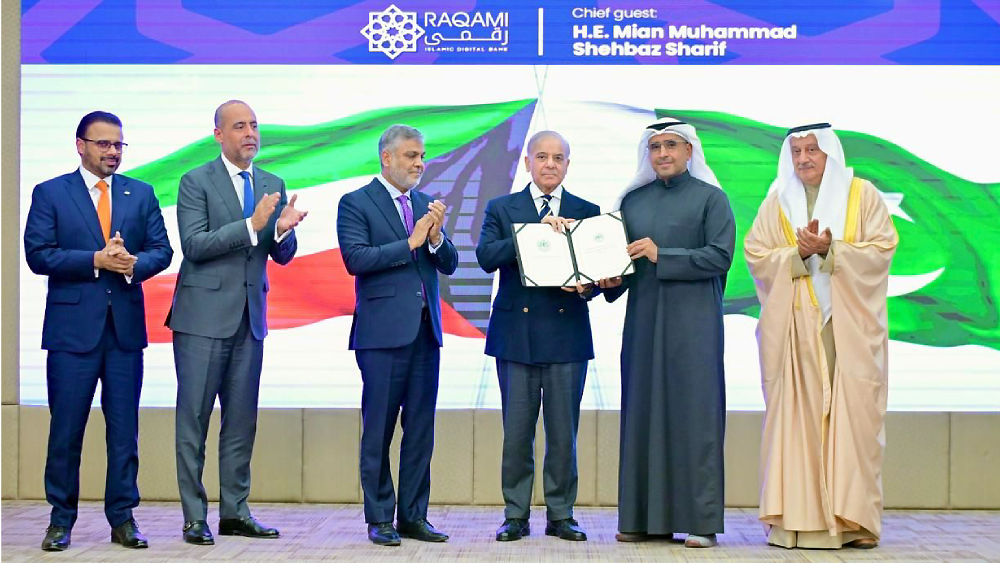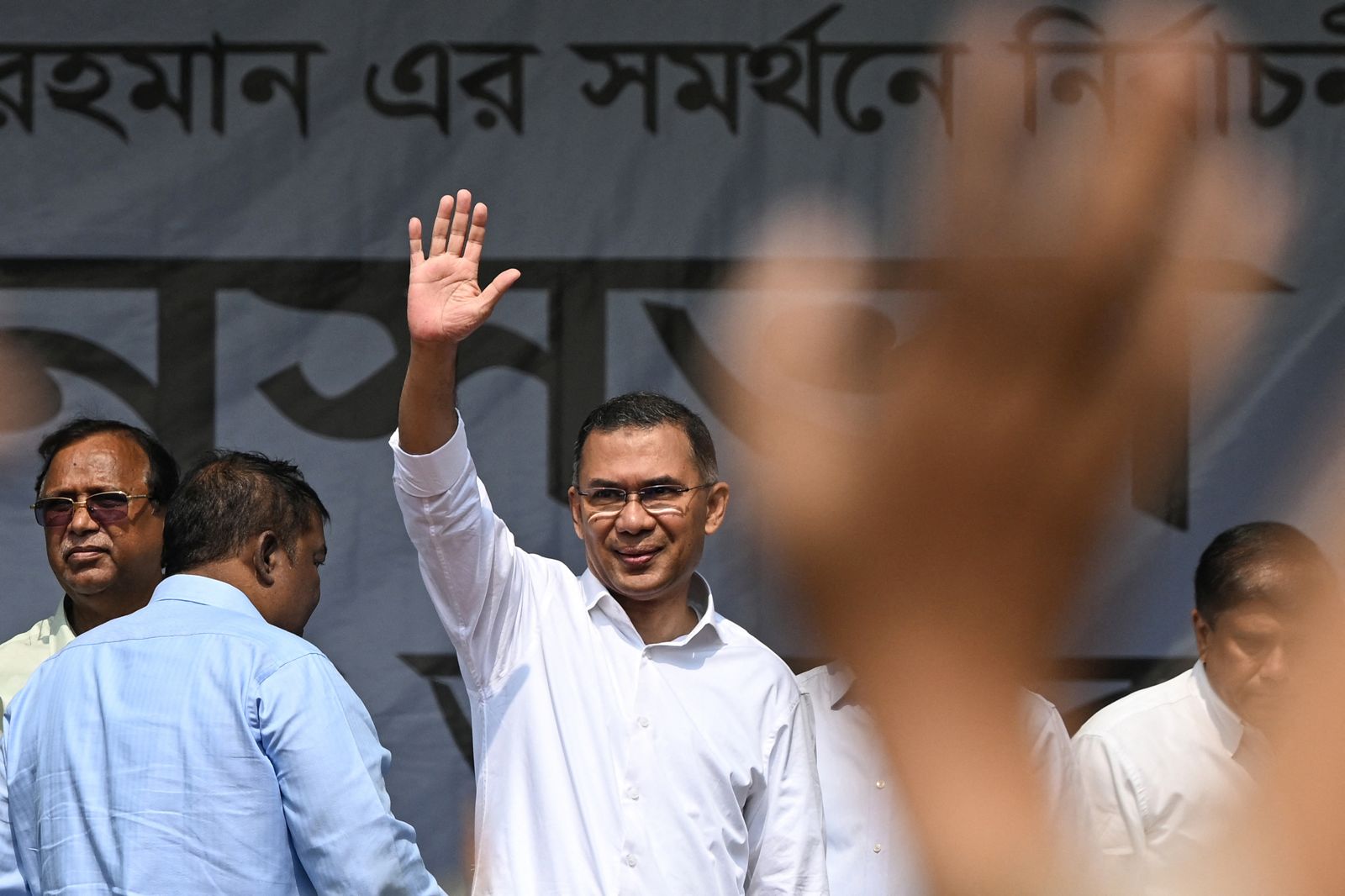Financial stability has helped Pakistan regain access to international markets: finmin

.jpg)
ISLAMABAD: Pakistan's Finance Minister Muhammad Aurangzeb presents the Pakistan Economic Survey 2024-25 report during a media briefing in Islamabad June 9, 2025, ahead of the state budget. -- Photo by AFP/File
ISLAMABAD: Pakistan’s Federal Minister for Finance and Revenue Muhammad Aurangzeb has observed that “improved macroeconomic fundamentals have enabled Pakistan to regain access to international commercial markets after more than two years.”
Aurangzeb, in an interview with CGTN America (China Global Television Network) during his visit to Washington DC for the IMF-World Bank Annual Meetings, outlined Pakistan’s continuing progress on macroeconomic stabilization, structural reforms, and growth-oriented policy measures, said a press release issued by Pakistan’s Finance Division on Wednesday.
The minister noted that over the past year, Pakistan’s economy has achieved notable consolidation in macroeconomic indicators.
“Fiscal and external accounts have stabilized, the exchange rate has remained steady, and foreign exchange reserves have increased to 2.5 months of import cover,” Aurangzeb stated.
He noted that “inflation has returned to single digits, the policy rate has been reduced by half, and all major global rating agencies, including Fitch, S&P, and Moody’s, have upgraded Pakistan’s outlook for the first time in nearly three years.”
Growth forecast
The finance minister informed that the second review under the International Monetary Fund (IMF)’s Extended Fund Facility had recently been completed in Islamabad, resulting in a staff-level agreement.
The Fund’s management has expressed continued confidence in Pakistan’s reform agenda, which remains focused on structural adjustments in taxation, energy, public finance, and privatization, he said, according to the press release.
The IMF has raised Pakistan’s economic growth forecast to 3.6% for the current fiscal year, exceeding the World Bank’s 2.6% estimate, while cautioning of possible higher inflation and current account deficit.
The IMF states, “the severe flooding in Pakistan during the third quarter of 2025 may have more adverse effects on growth, inflation, and the current account than currently estimated, although these impacts remain highly uncertain,” making the figures provisional.
Revival of privatization program
The finance minister highlighted the revival of the privatization program, noting the successful completion of the first transaction of the current fiscal year involving the sale of a small bank to a UAE-based conglomerate, with additional investment planned in digital expansion, the Finance Division’s press release said.
“The privatization of the national airline is also expected to be finalized before the end of the fiscal year,” Aurangzeb said.
He observed that “improved macroeconomic fundamentals have enabled Pakistan to regain access to international commercial markets after more than two years.”
“The government has recently secured borrowing from Middle Eastern banks and is preparing to issue the country’s inaugural Panda Bond before the end of the year,” Aurangzeb said.
He added that “Pakistan had smoothly repaid a $500 million Eurobond in September and is well positioned to meet the next $1.3 billion repayment due in April 2026.”
‘Existential challenge’
Addressing the economic impact of recent flooding, the minister emphasized that climate change remains “an existential challenge” for Pakistan.
“While agriculture, particularly rice and cotton crops, has suffered due to flooding, growth is still expected to remain close to 3.5% for FY2025-26.”
On Pakistan’s partnership with China, Aurangzeb reaffirmed “the long-standing and robust nature of bilateral relations, highlighting the launch of CPEC Phase 2.0.”
The finance minister said the new phase focuses on industrial cooperation, special economic zones, and private-sector-led investments.
“During the prime minister’s recent visit to Beijing, 24 joint venture agreements were signed across key sectors such as mining, agriculture, information technology, artificial intelligence, and pharmaceuticals, signaling strong investment traction.”
Digital transformation
The minister, while elaborating on the government’s digital transformation agenda, said: “Efforts are underway to digitize all government payments and strengthen digital infrastructure across sectors.”
“These initiatives have contributed to improved transparency and a broader tax base, reflected in the increase of the tax-to-GDP ratio from 8.8% to 10.2%. The integration of artificial intelligence and data analytics has also significantly enhanced the efficiency of tax administration,” he added.
Trade policy
Discussing trade policy, Aurangzeb mentioned that “Pakistan recently concluded tariff negotiations with the United States, securing favorable rates that are expected to benefit textile exporters, particularly in the home textile segment.”
He underlined Pakistan’s broader commitment to trade diversification, noting the government’s increased engagement with Central Asian republics and South-South economic cooperation frameworks.
In reference to the Shanghai Cooperation Organization Summit held in Tianjin, China, the finance minister expressed support for “President Xi Jinping’s Global Governance Initiative, which emphasizes sovereign equality, the rule of law, and multilateralism.”
He noted that these principles align closely with Pakistan’s approach to global engagement and cooperation.
Aurangzeb underscored that “Pakistan remains firmly committed to macroeconomic stability, structural reform, and sustainable, inclusive growth, with a clear focus on strengthening resilience, encouraging investment, and advancing the country’s long-term development agenda”, the press release concluded.
Related Articles
Latest News
India ramps up AI rules for social media platforms
AN HOUR AGO
.jpg)
Farhan, spinners lead Pakistan to easy USA win in T20 World Cup
3 HOURS AGO

Pakistan expresses condolences to Syria after devastating flash floods
5 HOURS AGO

Pakistan grants commercial license to Kuwait-backed digital bank
6 HOURS AGO

Bangladesh's PM-hopeful Rahman warns of 'huge' challenges ahead
7 HOURS AGO

